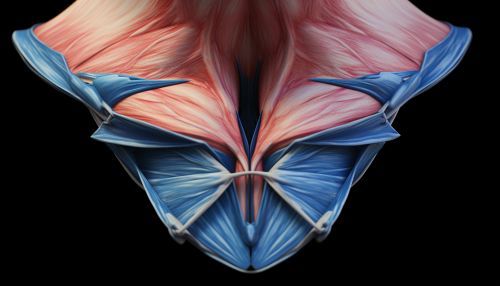Thyroid disorders
Overview
The thyroid gland is a vital hormone gland that plays a major role in the metabolism, growth, and maturation of the human body. It helps to regulate many body functions by constantly releasing a steady amount of thyroid hormones into the bloodstream. When the body needs more energy in certain situations – for instance, during cold weather or pregnancy – the thyroid gland produces more hormones. Thyroid disorders are medical conditions that affect the function of the thyroid gland. These disorders can range from a small, harmless goiter (enlarged gland) that needs no treatment to life-threatening cancer. The most common thyroid problems involve abnormal production of thyroid hormones. Too much thyroid hormone results in a condition known as hyperthyroidism. Insufficient hormone production leads to hypothyroidism.


Classification of Thyroid Disorders
Thyroid disorders can be classified into two major categories: functional disorders and structural disorders. Functional disorders involve an abnormal level of thyroid hormone production, while structural disorders are characterized by changes in the size or appearance of the thyroid gland.
Functional Disorders
Functional disorders of the thyroid gland include conditions such as hyperthyroidism, hypothyroidism, and thyroiditis. These conditions are often caused by an autoimmune response, where the body's immune system mistakenly attacks the thyroid gland.
Hyperthyroidism
Hyperthyroidism is a condition in which the thyroid gland produces an excessive amount of thyroid hormones. This overproduction can result in symptoms such as rapid heart rate, weight loss, nervousness, and irritability. The most common cause of hyperthyroidism is Graves' disease, an autoimmune disorder.
Hypothyroidism
Hypothyroidism is a condition in which the thyroid gland does not produce enough thyroid hormones. This can result in symptoms such as fatigue, weight gain, depression, and sensitivity to cold. The most common cause of hypothyroidism is Hashimoto's thyroiditis, another autoimmune disorder.
Thyroiditis
Thyroiditis is an inflammation of the thyroid gland. It can cause either hyperthyroidism or hypothyroidism and may be painful or painless. The most common types of thyroiditis include Hashimoto's thyroiditis, postpartum thyroiditis, and subacute thyroiditis.
Structural Disorders
Structural disorders of the thyroid gland include conditions such as goiter, thyroid nodules, and thyroid cancer. These conditions often result in changes in the size or appearance of the thyroid gland.
Goiter
A goiter is an enlargement of the thyroid gland. It can be caused by a variety of factors, including iodine deficiency, inflammation, and the presence of nodules or tumors.
Thyroid Nodules
Thyroid nodules are lumps that form within the thyroid gland. They can be benign (noncancerous) or malignant (cancerous). Most thyroid nodules are benign and do not cause symptoms.
Thyroid Cancer
Thyroid cancer is a type of cancer that starts in the thyroid gland. It is relatively rare but has been increasing in incidence over the past few decades.
Diagnosis and Treatment
The diagnosis of thyroid disorders typically involves a combination of physical examination, medical history, blood tests, and imaging studies. Treatment depends on the specific type of thyroid disorder and may include medication, radioactive iodine therapy, or surgery.
